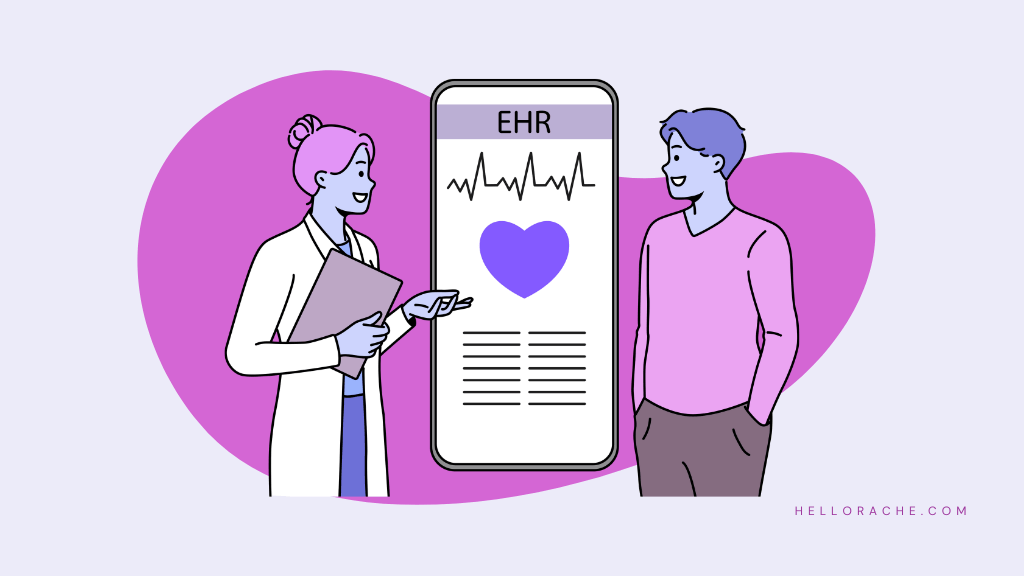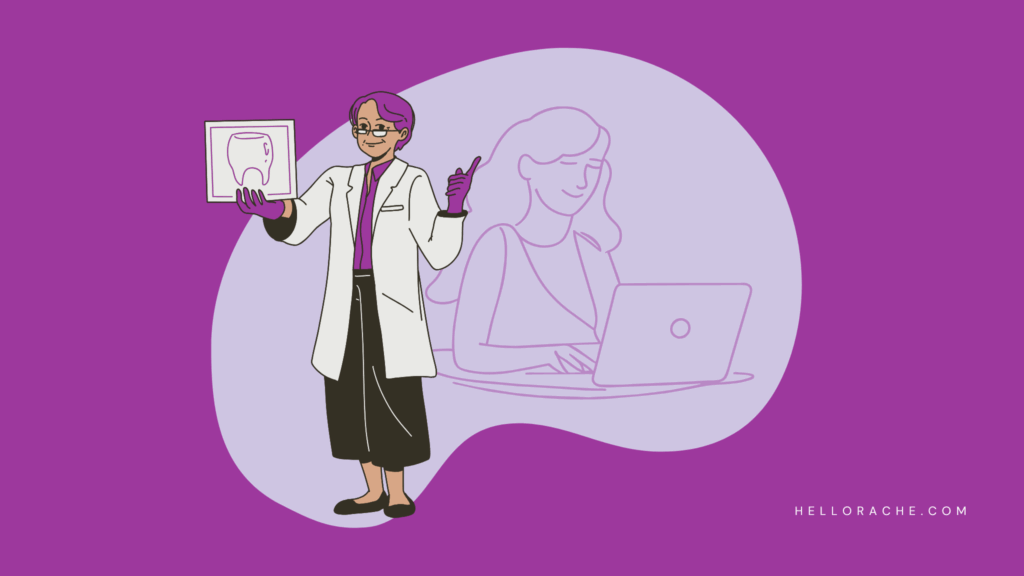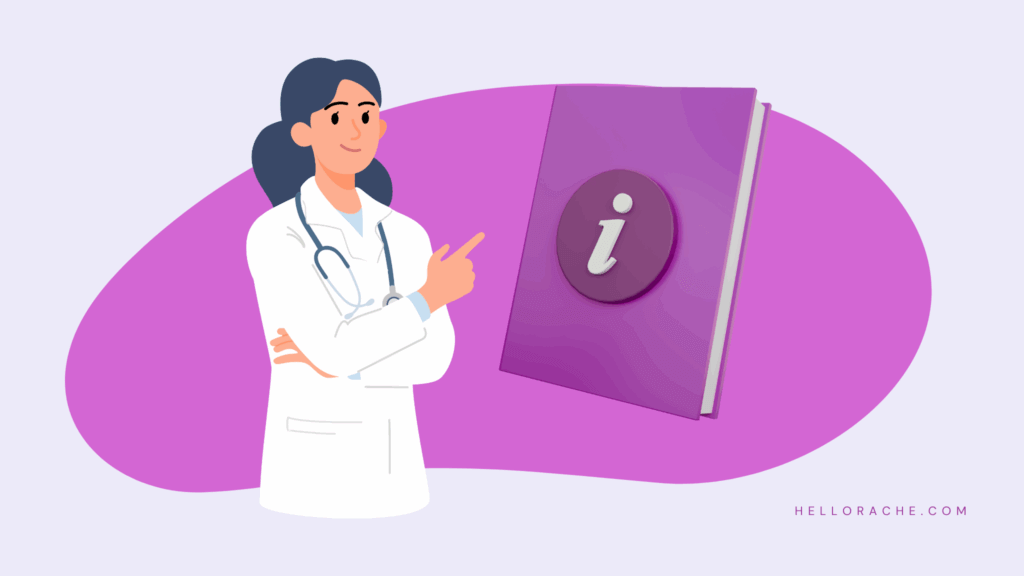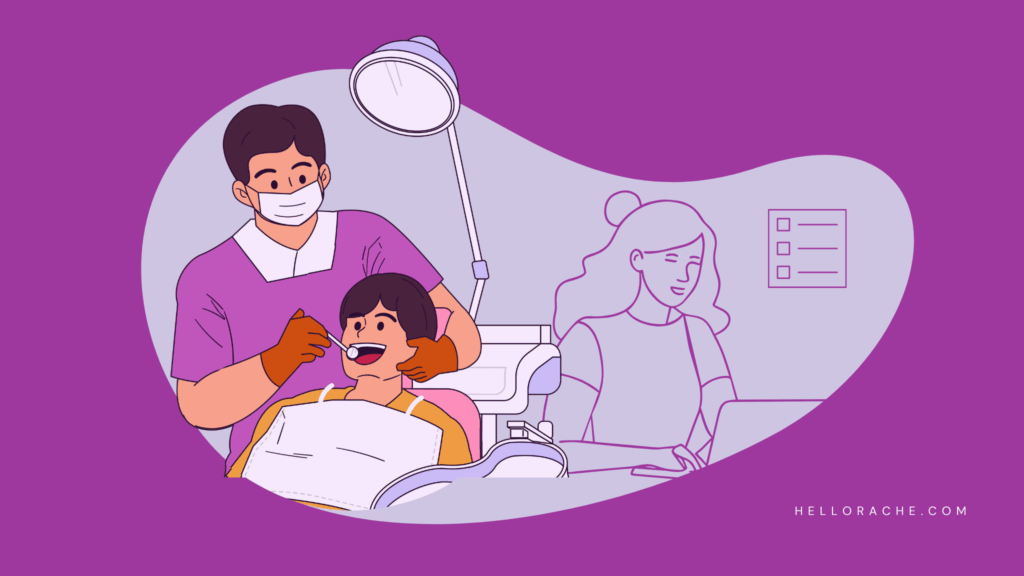The best EHR software empowers healthcare providers to improve patient care, streamline documentation, and reduce the administrative burdens that weigh down modern practices. Once you integrate the right platform, doctors and clinical teams can access patient histories, manage billing, and coordinate treatment plans from a single digital system. But choosing the right EHR solution isn’t as easy as you’d think. The market is crowded, and each system comes with its own strengths and weaknesses.
Hello Rache understands the importance of productivity and streamlining repetitive, time-consuming tasks, so we want to help you achieve this with the EHR software which is best for your practice. This is why we’ve designed this guide to help you break down the top 10 EHR software solutions on the market. As well as highlighting all their features, we’ll also look at the pain points practices face when adopting EHR systems. Most importantly, we’ll show you how healthcare virtual assistants from Hello Rache can help you get the best out of these tools.
Why Does EHR Software Matter in Modern Healthcare?
The best EHR software isn’t just about the move from paper charts to digital ones and how pleasing they look on a screen. The impact of EHR systems in a healthcare practice is widespread. It’s all about creating a more connected, data-driven practice which keeps pace with patient expectations and regulatory requirements which are getting increasingly complex. As you’ll be well aware, practices need reliable systems which enable them to document visits, order tests, track medications, and generate reports without generating a mountain of paperwork.
Although EHR software has been available for some time – the very first example went live in the 1960s – adoption rates have been slow. Nonetheless, EHR systems have gradually been refined to a point where they’re now considered highly powerful tools. Some of the most significant benefits they offer include:
-
Centralized Patient Data:
The advent of EHRs has meant that health records can be stored in one secure location. This enables providers across different services and facilities to access and update information seamlessly. Accordingly, this has improved collaboration, reduced duplication, and supported continuity of care for patients.
-
Automated Documentation Tools:
EHR systems reduce the time-consuming manual entry of documentation by offering templates, voice recognition, and auto-fill features. This speeds up documentation, minimizes errors, and allows physicians more time to focus on patients.
-
Integrated Billing Systems:
One of the lesser known benefits of EHRs is that they allow you to link clinical documentation directly into your billing workflows. Consequently, your practice can process claims faster, reduce rejected submissions and enhance cash flow. And, most importantly, this reduces the time your staff have to spend on complex insurance queries.
-
Improved Compliance:
The best EHR software packages includes built-in safeguards for HIPAA compliance and other healthcare regulations. These features ensure that risks are reduced, patient privacy is protected, and practices remain ready for planned and surprise audits with accurate recordkeeping.
-
Enhanced Patient Engagement:
In the 21st century, patients want to feel more involved with their care, and EHRs empower them to do this. With online portals, appointment scheduling, secure messaging, and telehealth integration, EHRs allow patients to take an active role while also enhancing communication between them and the practice.
The Top 10 Best EHR Software Solutions
At Hello Rache, we’ve worked alongside countless healthcare providers navigating the challenges of implementing and optimizing EHR systems. Our experience has given us a deep insight into which platforms deliver the most value for each different practice type. So, to help you make a more informed decision, we’ve put together this rundown of the top 10 best EHR software solutions available today:
-
Epic Systems:
Epic is seen as one of the best EHR software platforms for large hospitals and healthcare networks. Offering comprehensive clinical, administrative, and patient engagement functionality, it enables systems to communicate across different services and organizations. However, it’s also well known for its high costs and complex processes, making it less ideal for smaller practices.
-
Oracle Health:
Oracle Health is another giant of the EHR industry, best known for its population health management and workflows which are fully customizable. It’s particularly attractive if you regularly work with lab systems and it offers powerful analytics tools. While it’s highly scalable, Oracle Health can feel overwhelming for smaller healthcare practices and requires significant IT support to manage it effectively.
-
Athenahealth:
For outpatient clinics and mid-sized practices, Athenahealth is the perfect EHR solution due to its user-friendly design and cloud-based infrastructure. To underline its credentials, Athenahealth offers integrated practice management, billing, and patient engagement tools. Its main drawback is that there’s little emphasis on customization, meaning that its more limited compared to larger platforms like Epic and Oracle Health.
-
Veradigm:
Veradigm delivers flexible solutions for both small and large practices. Its strengths lie in e-prescribing, patient portals, and unparalleled clinical decision support. Pricing tiers vary, but some users have reported that getting to grips with the complexities of Veradigm can be frustrating. And, compared to competitors, customer support response times are noticeably slower.
-
eClinicalWorks:
If you’re a small to mid-sized practice, then eClinicalWorks is one of the best EHR software choices available. Alongside its affordable pricing, eClinicalWorks boasts a range of comprehensive features such as telehealth capabilities, population health tools, and strong integration functionality with other departments and services. However, while it is cost-effective, the eClinicalWorks interface is less intuitive than rivals like Athenahealth.
-
NextGen Healthcare:
NextGen is targeted at ambulatory practices and specialties such as behavioral health and pediatrics. Its many strengths can be found in its specialty-specific templates, mobile capabilities, and revenue cycle management. However, some providers have mentioned that customization can be fiddly and time consuming and significant training is required to fully optimize NextGen.
-
Kareo:
Kareo is a cloud-based EHR solution designed specifically for small practices and independent providers. Combining clinical, billing, and patient engagement tools all under one roof, Kareo prides itself on both its affordability and simplicity. Nonetheless, Kareo does lack the scalability and advanced analytics of EHRs compared to enterprise-level EHRs.
-
Greenway Health (Intergy):
Greenway offers mid-sized practices a strong set of reporting tools and is praised for a level of functionality which is perfect for specialty services. Some of the negatives, however, include challenges with customer service and successful integration of system updates.
-
DrChrono:
With an emphasis on being mobile-first, as demonstrated by its successful iPad app, DrChrono is an EHR which is highly appealing for practices on the go. It offers scheduling, billing, telehealth, and a wide range of customizable forms to make providing efficient healthcare that little bit easier. But while it may be convenient for smaller practices, DrChrono doesn’t always scale as well for larger organizations with complex needs.
-
Praxis EMR:
Praxis takes a unique approach among EHRs by using artificial intelligence to learn from a provider’s habits. The aim here is to make documentation faster and more personalized over time. Therefore, it’s perfect for physicians who want flexibility and don’t want to stick to rigid templates. However, it’s less suited for large organizations which require standardized workflows.
Challenges Practices Face When Implementing EHR Software
The best EHR software can transform how your practice operates, but only when it’s implemented successfully. But this implementation is far from easy. Many providers fail to appreciate the complexity of not just migrating data but also training staff and adjusting workflows to be optimized. The most common obstacles that practices face include:
-
Time Burden:
There’s always a significant amount of learning required when a new EHR system is introduced. And this is for staff at every level. This means physicians can be pulled away from patient care and schedules become prone to bottlenecks during the transition period.
-
Data Entry Overload:
Physicians and nurses can quickly become overwhelmed by the extensive amount of manual documentation required. This extra workload can quickly impact your appointments schedule and increase the risk of staff experiencing burnout.
-
Workflow Disruption:
Moving to a digital system will inevitably lead to a temporary disruption in your established routines. The major impact here will be a slowdown in your day-to-day operations until new workflows and processes are successfully integrated and adopted. This adjustment period can frustrate not just your physicians, but also your patients if it’s not managed carefully.
-
Increased Costs:
When you consider licensing fees, IT support, system upgrades, and ongoing maintenance, investing in a new EHR system represents a substantial investment. Accordingly, smaller practices may struggle with the financial burden of introducing an EHR platform.
-
User Frustration:
Employees are never keen on change, and a new EHR system represents major change. And these changes are not always positive. From clunky user interfaces to poorly customizable templates, these changes can frustrate staff and lead to a drop in productivity and dissatisfaction.
Why You Need to Pair Your EHR Software with Virtual Assistants
The best EHR software for your practice will always be a powerful tool. However, without the right support in place, it can quickly turn into another source of stress. That’s where virtual assistants can step in and save the day. While EHRs certainly provide the framework, virtual assistants can bring that framework to life. They can keep your data accurate, optimize your workflows, and make sure everything is taken care of.
EHR systems are comprehensive tools which can push your practice to new levels of excellence, but they can also feel overwhelming. This is because even the most basic appointment with a patient requires countless fields to be filled out. So, instead of expecting your healthcare professionals to type through an entire appointment, why not turn to a Hello Rache virtual assistant? They can listen in securely and enter notes in real time. This simple shift can give several hours back to your doctors every week.
Smaller practices can also see benefits in numerous other areas. For example, a Hello Rache virtual assistant can handle scheduling changes, patient intake, and insurance processing. This means your EHR system is always up to date and reflects exactly what’s happening in your practice without staff having to scramble to keep up.
The result isn’t just enhanced efficiency, it’s better care. Patients will notice when their physician is fully focused on them, not distracted by clicking boxes on a screen. Letting virtual assistants manage the digital side of things enables doctors to focus on listening, engaging, and treating. It may sound like a small change, but the impact is huge. And it’s all thanks to working with the best EHR software and virtual assistants.
Find Your Perfect Virtual Assistant with Hello Rache
If you’re ready to get the most out of your EHR system while reducing administrative burdens, get in touch with Hello Rache today and find out how our virtual assistants can transform your practice. At just $9.50 per hour, our services are offered at an affordable, transparent flat rate with no hidden fees or long-term contracts. This affordability makes it easy for practices of any size to get reliable support implanting their EHR systems without stretching their budgets.
Best of all, our virtual assistants are trained to work directly within your EHR software, helping with data entry, appointment scheduling, and documentation so your records are always accurate and up to date. Instead of feeling burdened by endless clicks and forms, your staff can focus on what they do best: patient care and meaningful interactions.
Ready to take that next step? Click here to unlock the potential of your practice.
Discover what Hello Rache can do for you and your practice
Tell us a little about your practice & we will contact you within 24 hours.




